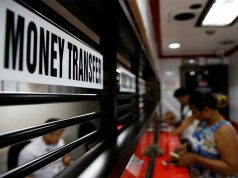MANILA – Banks and other financial firms are required to offer electronic payment channels for all clients and should be able to put up systems that will allow fund transfers in a matter of seconds, the central bank said.
The Bangko Sentral ng Pilipinas (BSP) spelled out specific guidelines for the National Retail Payment System (NRPS) covering banks, non-banks and e-money issuers, in line with an industry-wide push towards digital transactions.
The central bank targets to shift cash-heavy transactions to digital avenues via the NRPS, which they expect to help broaden access to financial services and spur increased economic activity.
The rules spring from Circular 980 issued in November, which endorses the creation of automated clearing houses (ACHs) which would process payment and transfer instructions given through digital channels, which include online and mobile banking.
BSP Memorandum 2018-012 requires all BSP-supervised financial institutions (BSFIs) to have electronic platforms ready for public use so that they can participate in the NRPS scheme.
“The regulatory requirement is that electronic payment facilities, such as those enabled via the BSFI’s participation in ACHs, shall be available to the clients,” the rules read, as signed by Deputy Governor Chuchi G. Fonacier.
“For this purpose, non-availability of electronic payment in a delivery channel requires written justification from the BSFI addressed to their respective offsite units…”
The same rules also prohibit players to do bilateral payment arrangements, with all fund movements required to pass through the respective clearing houses. This is to preserve “free and fair competition” and maintain system-wide efficiency, the regulator said.
All BSFIs must likewise comply with “immediate credit” after electronic fund transfers (EFT) are cleared.
“The time frame of immediate credit to the payee’s account for near real-time transactions is within 2 to 3 seconds from receipt of clearing advice by the receiving institution,” the BSP said.
A two-hour window for crediting funds is provided for batched transactions, referring to the Philippine EFT System and Operations Network (PESONet) launched late last year.
The PESONet is the industry’s first attempt at rapid interbank transfers, which leapfrogs from the Philippine Clearing House Corp.’s system for bank checks to now include e-wallets.
The BSP also reminded all players that they can only impose fees and charges on money senders — if at all, with all recipients to receive amounts in full.
The central bank has set an ambitious goal to bring the share of e-payments to 20% of all financial transactions by 2020, coming from a measly one percent share back in 2013.









